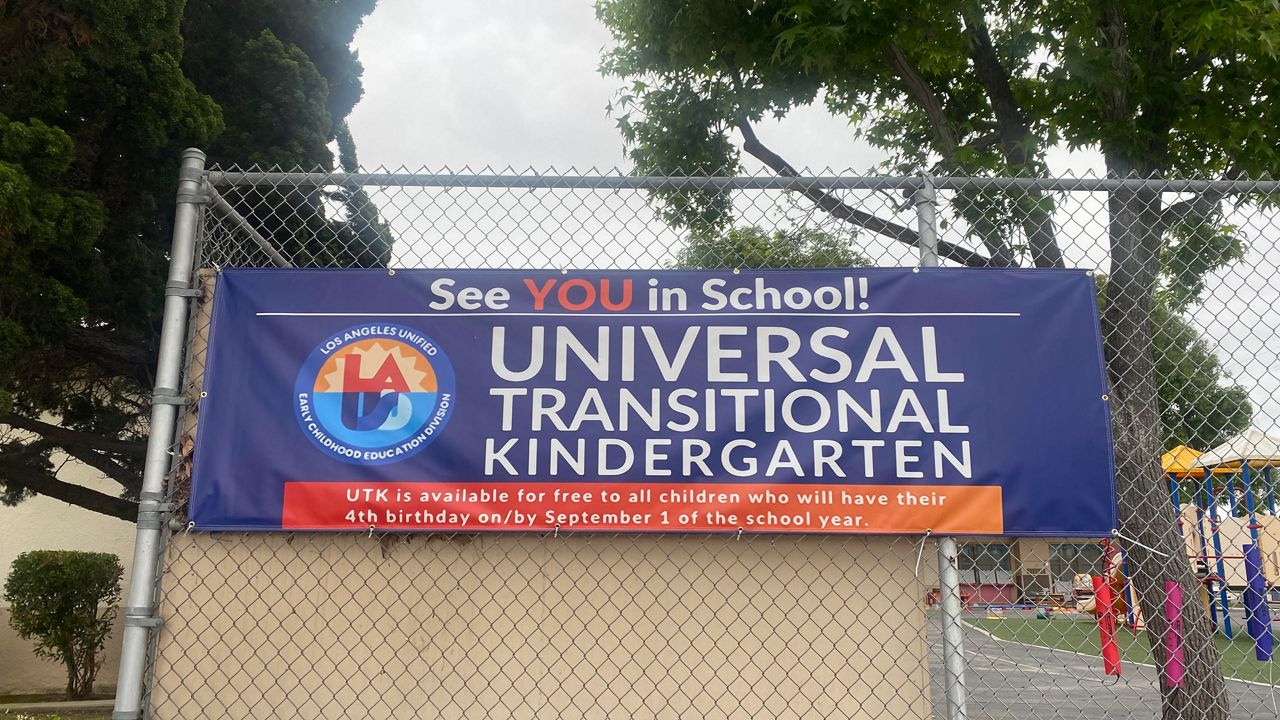LOS ANGELES — Four-year-olds in the Los Angeles Unified School District will have access to universal transitional kindergarten starting this fall, the school district announced Friday. UTK, as it’s known, is a free program to help young learners develop social and emotional skills before they enter kindergarten. In the works for a year, and already available in 317 LAUSD schools, the program will roll out to all 488 elementary schools in the district, starting with the 2023-24 academic calendar.
“A lot of our children in Los Angeles Unified do not demonstrate readiness for school by the time they enter kindergarten or first grade,” LAUSD Superintendent Alberto M. Carvalho said at Van Deene Avenue Elementary STEAM Academy in Torrance, where he announced the program. “If they do not possess the readiness skills to learn, then we know that the inevitable will happen. That means by third grade, they will have fallen behind grade level proficiency in reading and numeracy.”
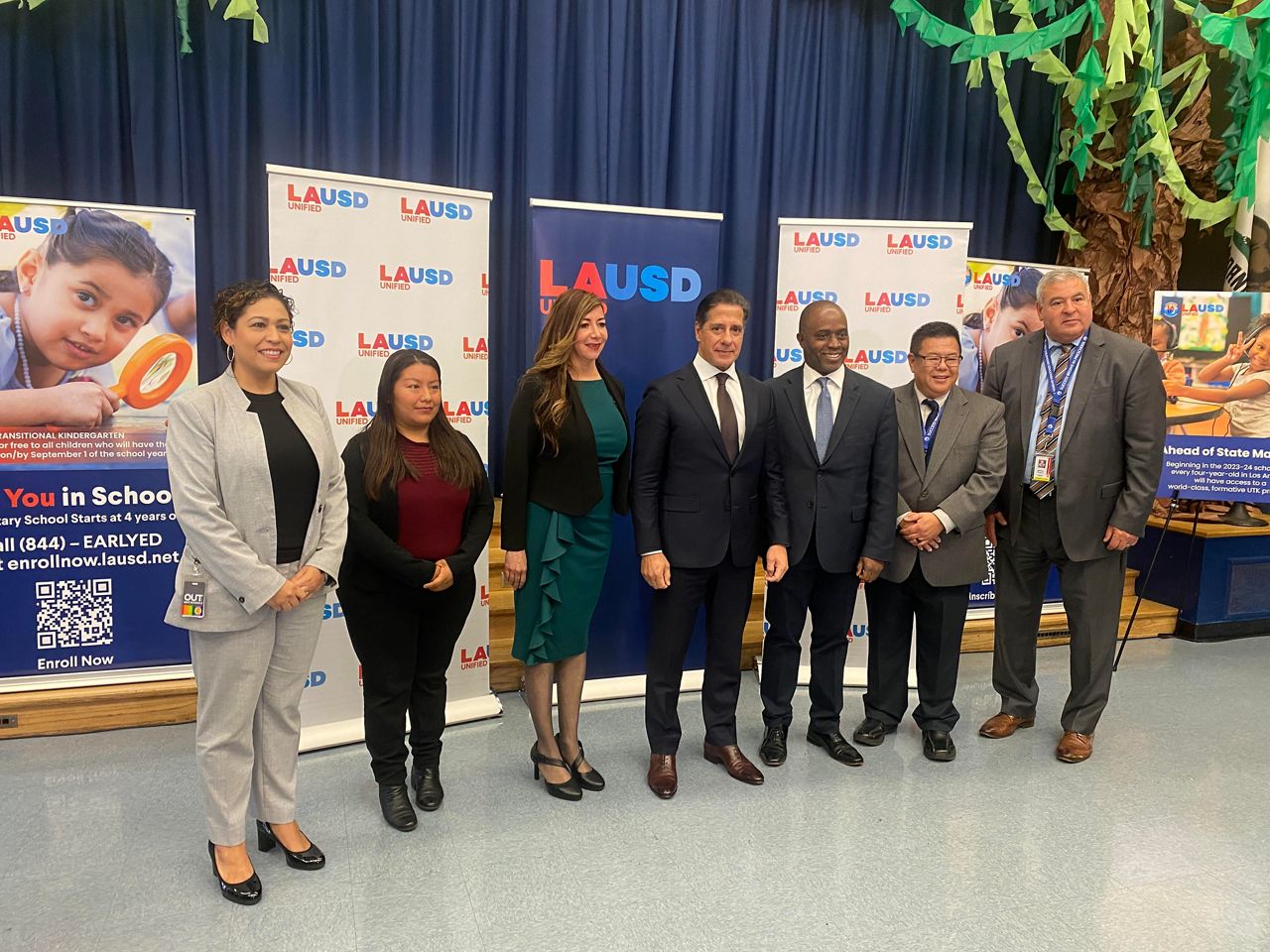
By middle school, he added, they will be significantly below grade level performance and may not be able to graduate on time or at all. Carvalho cited research that the best way to boost graduation rates is to make wise investments in early childhood education.
“Everything else is remediation if you do not get early education right,” he said.
Each UTK class can accommodate 24 students and will be taught by two professionals: a certified, credentialed teacher and a paraprofessional. In classrooms with special needs students, the classes will be bolstered with two additional teachers: a special education instructor and a second paraprofessional, Carvalho said.
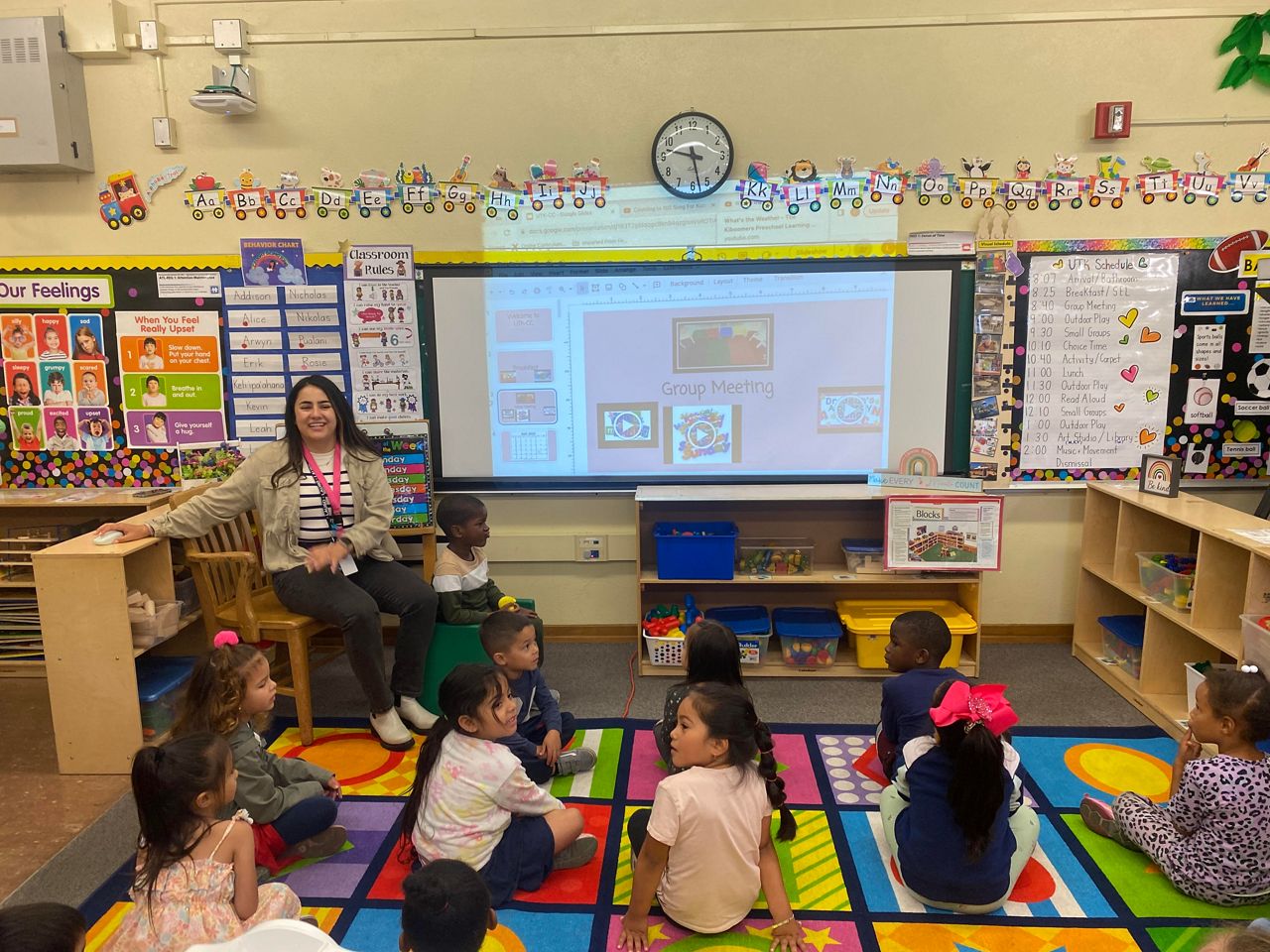
About 14,000 LAUSD students are currently enrolled in UTK programs. Starting in August, the district hopes to enroll an additional 10,000 to 11,000 students.
Carvalho said the UTK program is especially critical for students facing poverty, English language limitations or housing insecurity who would otherwise fall behind.
“Empowering them with strategic education and support systems will elevate them and keep them on track to enter first grade at proficiency level, move on to middle school at proficiency level and then go on to high school,” Carvalho said.
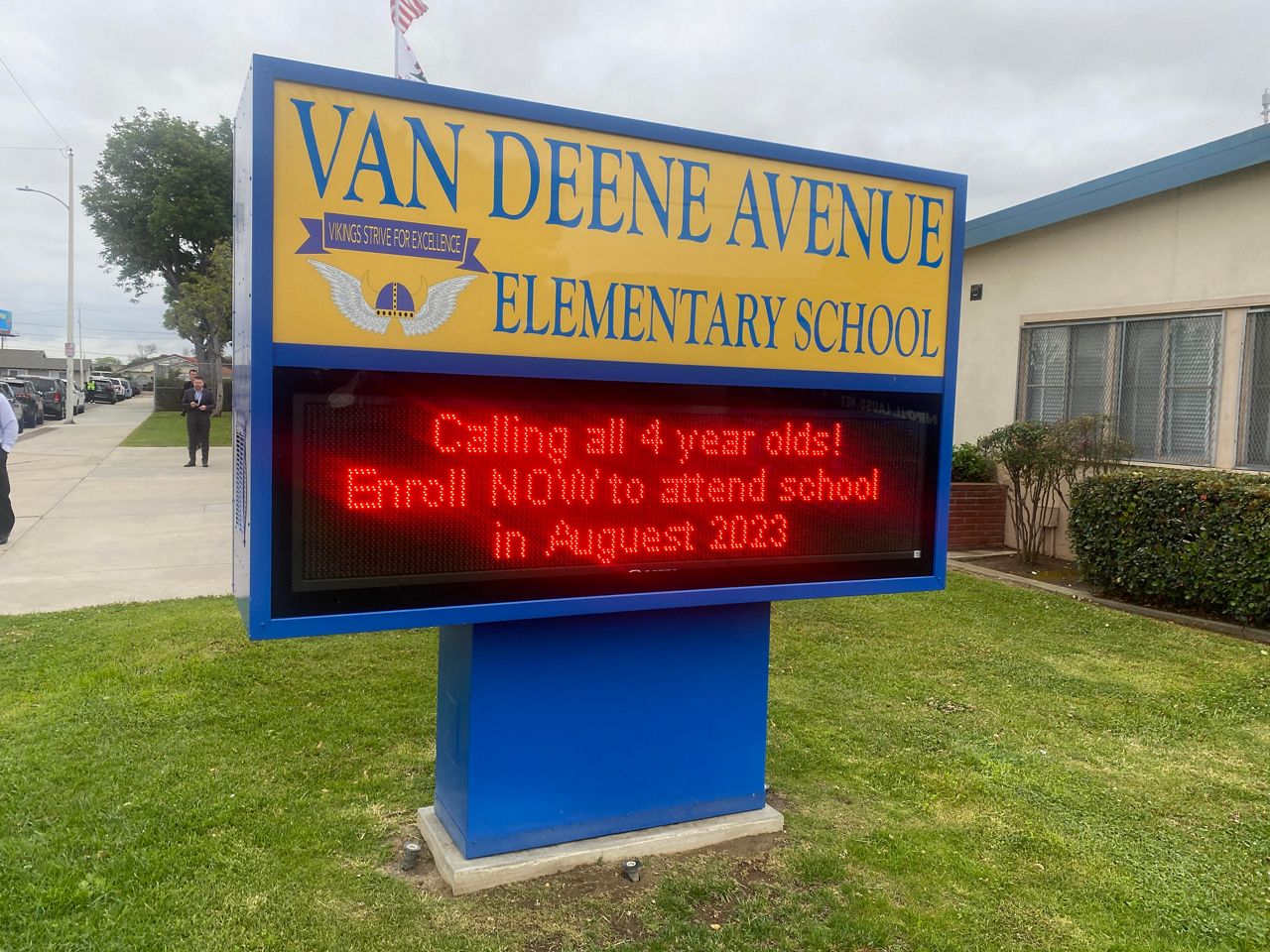
LAUSD’s systemwide rollout of UTK this fall is happening two years ahead of a new state mandate. UTK will be required in California elementary schools starting with the 2025-26 school year.
“We’ve also made a bold promise that we’ll make sure that every student who enters kindergarten this year will be able to read by the year of 2026 when they are in third grade, but we don’t wait for third grade to begin working on literacy,” said State Superintendent of Public Instruction, Tony Thurmond. “This begins in early education. UTK is part of that.”
The California Department of Education has provided $26 million in UTK planning and implementation grants to support the program’s startup.
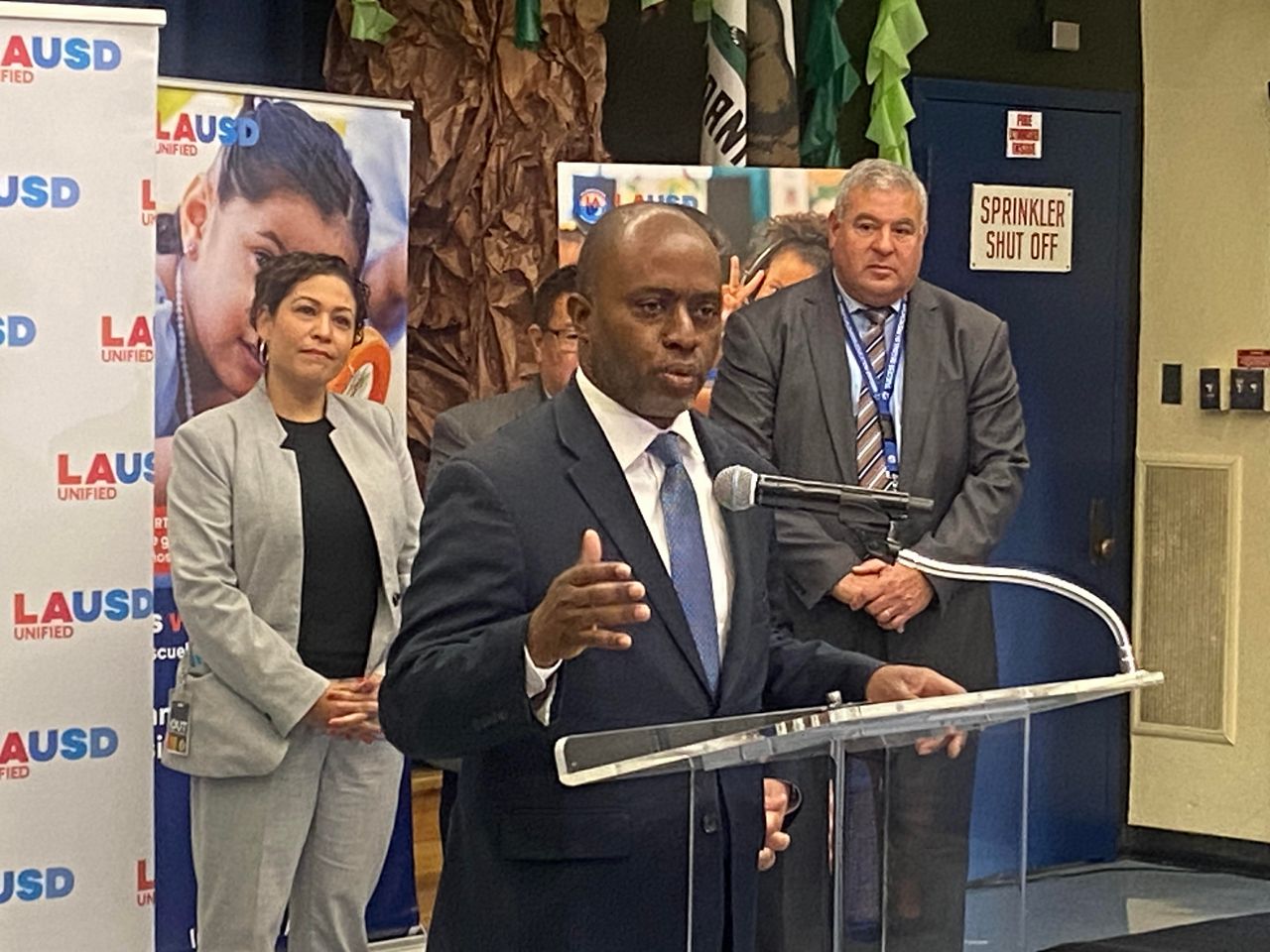
“Early education matters. We have the ability to make sure that we educate and not incarcerate our kids,” Thurmond said. “This is an important educational issue. This is a human rights issue. This is a civil rights issue.”
Children who learn to read by third grade, Thurmond said, will graduate and engage in some level of post-secondary education, but those who do not drop out and are at greater risk of ending up in the criminal justice system.
California has an adult literacy rate of 76.9%, according to the nonpartisan World Population Review. That means one in four residents ages 15 and older cannot read or write a simple sentence, making the Golden State the least literate of all states in the country.
The Review found that 35% of people with low English literacy skills in the United States are white, 23% are Black, 34% are Hispanic and 8% are other ethnicities. At least some of the low literacy results are a result of being born outside the U.S. and being non-native speakers, especially among the Hispanic population.
California also has the second highest prison population in the country, following Texas, according to the World Population Review. About 70% of the inmates in U.S. prisons cannot read above a fourth-grade level. Two-thirds of students who do not read proficiently by the end of fourth grade end up in prison or on welfare, according to the National Assessment of Adult literacy.



